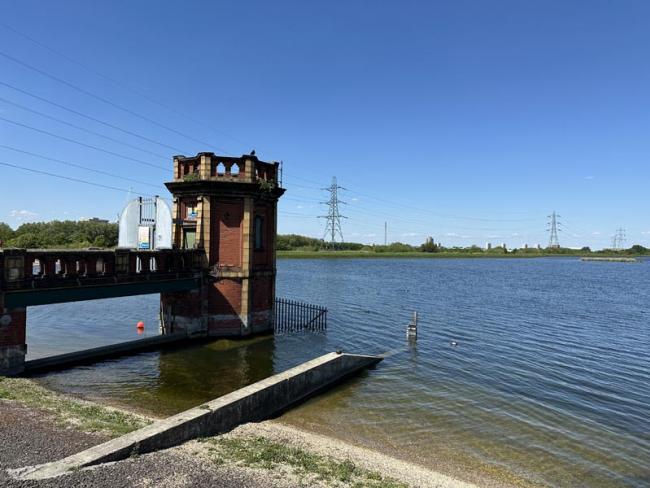
Lockwood Reservoir, Walthamstow, managed by Thames Water. Photo Workers.
Water company shareholders in England and Wales have taken more than £85.2 billion since privatisation in 1989. Bondholders have taken a similar amount. The water companies’ total debt is £65 billion.
Thames Water has £20 billion of debt. It owes money to investment firms like BlackRock, Elliott Management and Aberdeen. They say they will “overhaul” £17 billion of the debt and then invest £3 billion in new equity. Clearly, they see more money can be made from our need for water.
As a condition of buying the company, these firms want the government to grant them immunity from prosecution for future environmental crimes. Clearly, they see that the best way to make even more money is to carry on committing environmental crimes. They never pay for their crimes anyway. If the government fines them, the water companies cheerfully cover the costs by upping our water bills (up by 36 per cent over the next five years, nodded through by Ofwat).
The predator companies claim that they are the only way forward for Thames Water, given that the government has foolishly pledged not to even consider nationalising the whole industry. The government claims that nationalisation would be inordinately expensive, which has given the companies what they see as an unassailable blackmailing position as the last and only game in town.
When the government says it will curb bonuses, the companies shamelessly riposte that they will just increase the directors’ salaries to cover their losses. They say this is to attract the best and the brightest, when in fact it attracts largely the greediest and most unscrupulous.
Water company lobbyists claim that it would cost £99 billion to nationalise the water industry, an estimate the government passively accepts and repeats. But new research by Ewan McGaughey for Common Wealth exposes this as self-interested nonsense. The true cost is close to zero.
